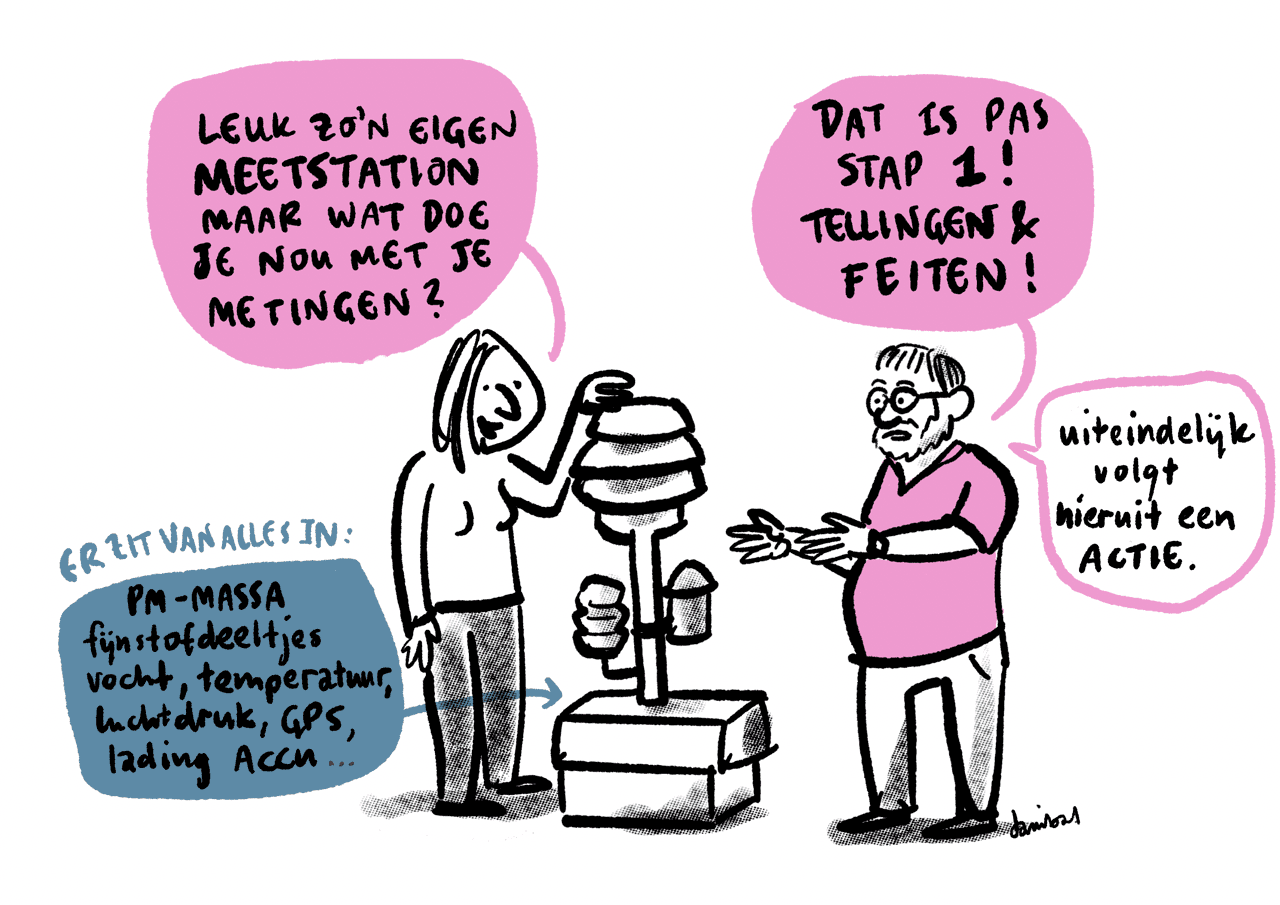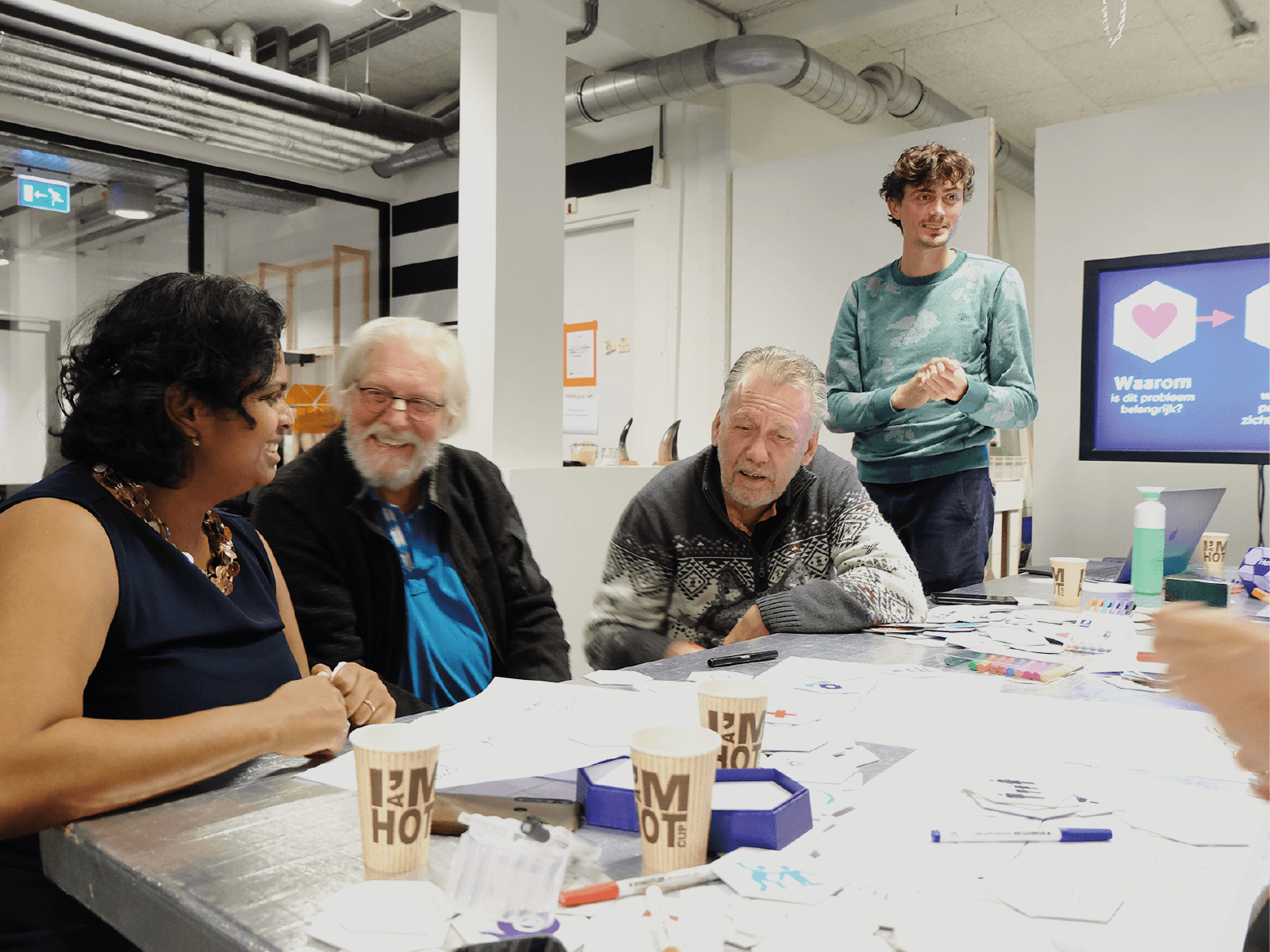People in communities are just as knowledgeable as scientists. The only thing missing is a knowledge infrastructure that shares practical knowledge with science in the long term, said Johannes Lankester of the initiative Duurzame Gemeenschappen during Stadskenners. At this annual event, Waag, researchers and social initiatives discuss the connection between science and society.
As 'trekker' of the Smart, Liveable Cities route of the National Science Agenda, Waag Futurelab organises the annual Stadskenners: an event to strengthen the connection between science and society. This edition of Stadskenners focused on the positioning of social initiatives in research consortia. How can knowledge from society and research reinforce each other? Waag invited Johannes Lankester at Stadskenners to share his experiences from Duurzame Gemeenschappen, a knowledge platform that connects initiatives throughout the Netherlands.
Local drive as the basis of sustainable change
There are countless examples of how local, highly committed organisations with minimal resources are improving the living environment and making decisions about sustainable developments such as wind turbines and heating networks. Johannes sees that sustainable communities have a working transition model that starts with community building and ultimately leads to the realisation of solutions for social innovation, health or the energy and food transition, for example. According to Johannes, local drive forms the basis for lasting change.
The position of civil initiatives in research
Johannes emphasised that people in communities are just as knowledgeable as scientists. This knowledge is still underutilised because of the way science is organised with its funding instruments. There is a lack of a knowledge infrastructure that shares practical knowledge with science in the long term.
In consortia and research projects, the practical knowledge of local initiatives is often still underexposed. Project objectives are usually determined by the large participating knowledge institutes and the lead partner. This means that it is mainly scientific questions that are embedded in the project, while social questions should be just as firmly embedded.
It is therefore important that communities are involved from the outset in the formation of a research project. This also requires collaborations that do not end when the project is completed, but can continue to develop.
Funding and independence
A recurring theme in the discussions during this edition of Stadskenners was the tension between funding and independence. Johannes emphasised that initiatives are vulnerable to the interests of knowledge institutes, governments and companies if they receive funding from them. Independence offers freedom and trust. But without financial support, citizens' initiatives are also vulnerable.
The attendees of Stadskenners emphasised the need for protection: structural basic funding, independent of interests. Others in the room felt that such basic funding was not necessary if local interests were better embedded in the research. Moreover, money is not the only form of appreciation.
Involve social initiatives in shaping research calls
The position of social initiatives can also be strengthened even before research takes place. These collaborations can already be sought when drawing up research agendas and calls, so that local issues raised by the community take centre stage.
In line with this, Waag led the dialogue on the theme of a research call (the NWA-ORC) based on the Smart, Liveable Cities route during this edition of Stadskenners. Insights from the dialogue will be incorporated into the formulation of the research call.
About Stadskenners
Waag organises Stadskenners annually as part of the Smart, Liveable Cities route of the National Research Agenda (NWA). The NWA routes are intended to raise and investigate important scientific, social and economic issues in society. As the driving force behind the Smart Liveable Cities route, Waag Futurelab organises events, collaborations and consultations on the theme of “Smart, liveable cities”, bringing together social organisations, administrators, citizens and scientists.
This time, Stadskenners was part of Kennis Maken: the Citizen Science Expo, where it reached a diverse audience of social initiatives, scientists, governments and knowledge institutions.


